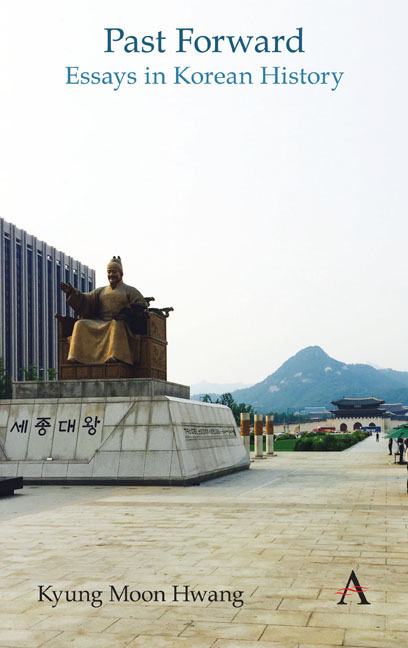Book contents
- Frontmatter
- Contents
- List of Figures
- Foreword
- Chronologies of Korean History
- Themes
- Acknowledgments
- Note on Romanization and Spelling
- Part I Circulating History
- Part II Durable Traditions
- Part III Ancient Remains
- Part IV Dynastic Depths
- Part V Modern Origins
- Part VI Challenges of Nationhood
- Part VII History Makers
- 41 Demythologizing King Sejong the Great
- 42 Modern Lady Shin Saimdang
- 43 Five Potential National Heroes
- 44 A Portrait of Great Painters
- 45 Four Young Men from 1884
- 46 Na Hye-seok
- 47 Hyundai Motors and Chung Ju-yung
- 48 Yun Isang and the East Berlin Case
- 49 Ri Young-hee, Iconoclast for Democracy
- 50 Kim Young Sam's Broad Historical Appeal
- 51 Kim Dae Jung's Historic Election
- Part VIII External Presences
- Part IX Trials of Modernization
- Part X Gripped by the Past
- Index
45 - Four Young Men from 1884
from Part VII - History Makers
- Frontmatter
- Contents
- List of Figures
- Foreword
- Chronologies of Korean History
- Themes
- Acknowledgments
- Note on Romanization and Spelling
- Part I Circulating History
- Part II Durable Traditions
- Part III Ancient Remains
- Part IV Dynastic Depths
- Part V Modern Origins
- Part VI Challenges of Nationhood
- Part VII History Makers
- 41 Demythologizing King Sejong the Great
- 42 Modern Lady Shin Saimdang
- 43 Five Potential National Heroes
- 44 A Portrait of Great Painters
- 45 Four Young Men from 1884
- 46 Na Hye-seok
- 47 Hyundai Motors and Chung Ju-yung
- 48 Yun Isang and the East Berlin Case
- 49 Ri Young-hee, Iconoclast for Democracy
- 50 Kim Young Sam's Broad Historical Appeal
- 51 Kim Dae Jung's Historic Election
- Part VIII External Presences
- Part IX Trials of Modernization
- Part X Gripped by the Past
- Index
Summary
There is an extraordinary photograph dating from the mid-1880s of four dashing Korean men, who look poised, confident, and ready to do big things. In fact, they had just done a very big thing: They had violently overthrown their government in order to push through revolutionary change. Alas, they themselves were deposed after three days in power, forced to flee the country as state criminals.
This was the famed Gapsin Coup of December 1884, and that famous picture was taken in Japan, where they had found exile. That event and these men captured both the perils and promises of Korea at the dawn of a turbulent new era. What had brought these four gentlemen together was participation in the emerging enlightenment movement of the 1870s and 1880s. Under the guidance of teachers like Yu Hong-gi and Bak Gyu-su, they became convinced of the need for fundamental social reform and for learning from the outside world. Their sense of an urgent common mission sharpened as they grew more frustrated with the pace of government reform, until finally in desperation they decided to take drastic action.
Within a year after that fateful act and their shared experience of fleeing to safety, they would go their separate ways. Strikingly, however, the destinies of each of the four would symbolize a distinct but representative path for the country as a whole in this period.
As the head of this leadership group, Gim Ok-gyun was the best known. Having grown up in political circles and passing the state civil service exam, Gim was appointed to increasingly higher positions in the central government in the early 1880s. He also visited Japan in order to observe directly the rapid advances being made there. Back home, he hosted meetings of like-minded reformists in the self-proclaimed Enlightenment Party, and through this network he organized the Gapsin Coup. Upon taking power, however briefly, Gim spelled out a sweeping program of modern changes, including diplomatic independence from China, the elimination of hereditary classes, and the reorganization of government to eliminate corruption and waste.
In Japanese exile, Gim lived anxiously due to threats and demands from the Korean court for his extradition.
- Type
- Chapter
- Information
- Past ForwardEssays in Korean History, pp. 134 - 136Publisher: Anthem PressPrint publication year: 2019



